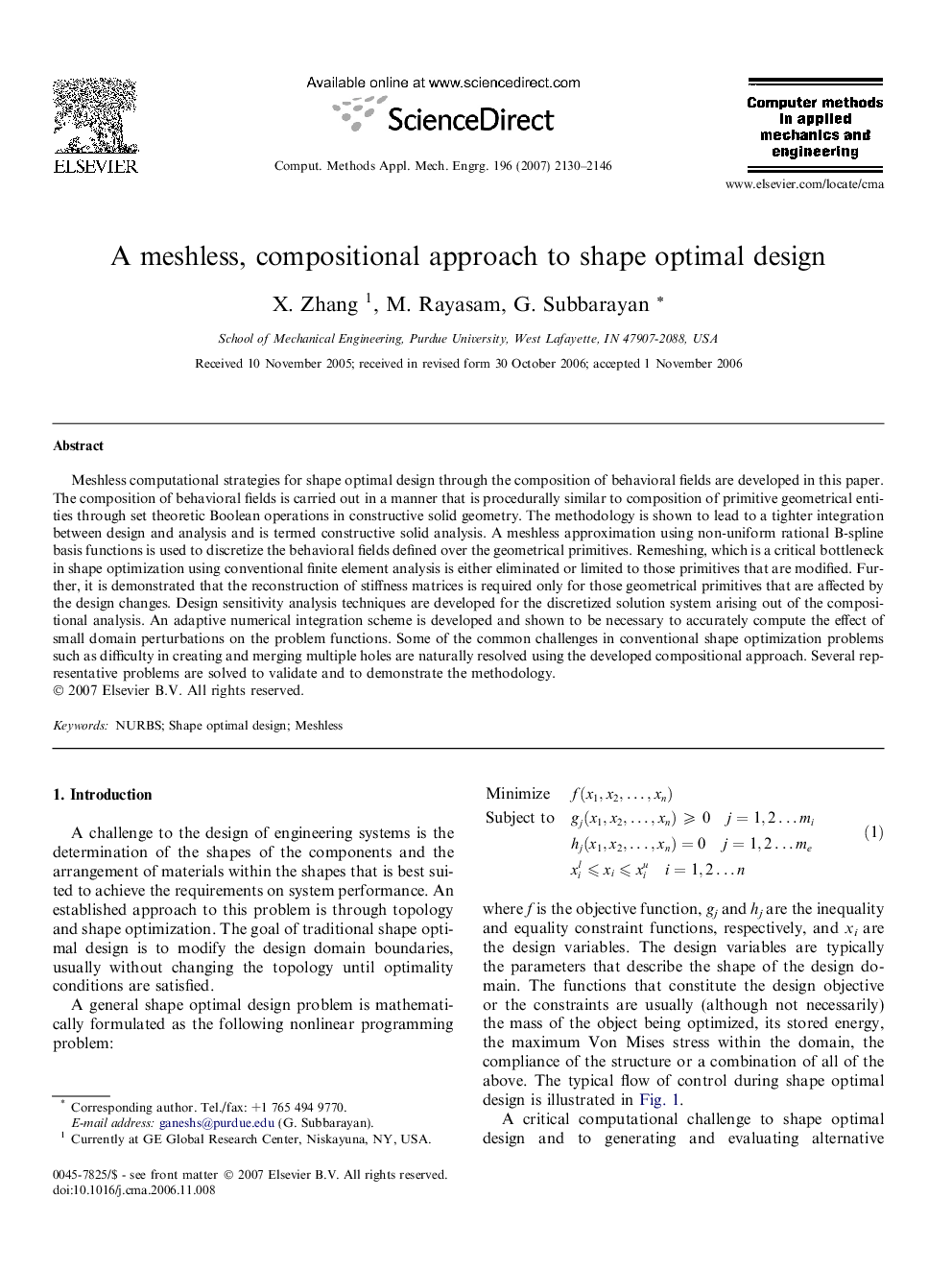| Article ID | Journal | Published Year | Pages | File Type |
|---|---|---|---|---|
| 499489 | Computer Methods in Applied Mechanics and Engineering | 2007 | 17 Pages |
Meshless computational strategies for shape optimal design through the composition of behavioral fields are developed in this paper. The composition of behavioral fields is carried out in a manner that is procedurally similar to composition of primitive geometrical entities through set theoretic Boolean operations in constructive solid geometry. The methodology is shown to lead to a tighter integration between design and analysis and is termed constructive solid analysis. A meshless approximation using non-uniform rational B-spline basis functions is used to discretize the behavioral fields defined over the geometrical primitives. Remeshing, which is a critical bottleneck in shape optimization using conventional finite element analysis is either eliminated or limited to those primitives that are modified. Further, it is demonstrated that the reconstruction of stiffness matrices is required only for those geometrical primitives that are affected by the design changes. Design sensitivity analysis techniques are developed for the discretized solution system arising out of the compositional analysis. An adaptive numerical integration scheme is developed and shown to be necessary to accurately compute the effect of small domain perturbations on the problem functions. Some of the common challenges in conventional shape optimization problems such as difficulty in creating and merging multiple holes are naturally resolved using the developed compositional approach. Several representative problems are solved to validate and to demonstrate the methodology.
